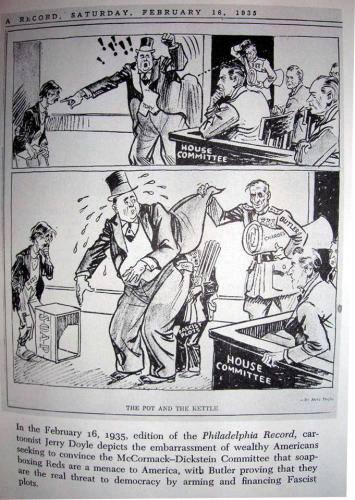The Plot to Seize the White House is back in print.
Here is list of subjects that would make for interesting political reading. There are many well established stories in American politics, but there is also the small hidden anecdotes that may say more about our political history than the we know.
To be honest, I do not believe some of those are terribly important. The History of the Natural Law Party would… take us into the realm of New Age philosophy, and could well simply conclude with a post-script about What the Bleep Do We Know? There isn’t much there with the strange joke that ended up being taken seriously by miscallenous troubled individuals with the Libertarian National Socialist Gree Party. On the other hand, the 1924 Democratic Convention does tell us something about our history — and we can take it in a variety of directions — as a close vote on whether to condemn the Klu Klux Klan foretold a stalement of a never-ending fight between Alfred Smith and William Jennings Bryan’s candidate — whose name has faded into obscurity.
Good news, though, for this sort of thing. A long-out of print book has just now been reprinted. For your consideration, the basic story in cartoon form:
The Plot to Seize the White House, by Jules Archer. It’s a flawed book in its redundacy, as it begins with the narrative of what happened as alleged by Smedley Butler, moves into a biography of Smedley Butler, and then goes through excerpted transcripts of the House Committee investigating the matter — which does indeed… tell the story again — with a variety of denials.
Left are a number of resloved, and probably unresolvable, issues, as to who did what for what motivation. Expunged from the record was testimony that incrimated 1928 Democratic hopeful Alfred Smith and 1924 Democratic hopeful John Davis (then attorney for JP Morgan) of the newly formed “Liberty League” which was to be a backdrop of criticism to soften the blow to allow the appointment of a popular military head following in the footsteps of the French Criox de Feu. (Because the European study of fascist governments turned out that Germany’s model for military take-over and Italy’s model for military take-over were not workable in America.)
Roosevelt may have just well nixed further investigation into that corridor to keep his party from splintering. (And to whatever degree he was assuaging big business in punting away the Liberty League and dealing with anyone else.)
I can’t tell how much power the conspirators had in pulling off this plot, and all I can go on is what pull they had in pushing various measures — such as, when Butler refused to deliver speeches to convince the American Legion to demand America stay on the Gold Standard, they managed an effusive telegram campaign and… the American Legion endorsed the Gold Standard. Butler mused that they didn’t address the Bonus issue. (This was all the auspices that Roosevelt would prefer to go with the Gold Standard as any upstanding member of his class would — and he just needed the correct pressure to force him to that conclusion. Another section that was expunged from the Congressional Record.)
So the book is back in print. And now you know the rest of the story, if you want to.
 Â
Â